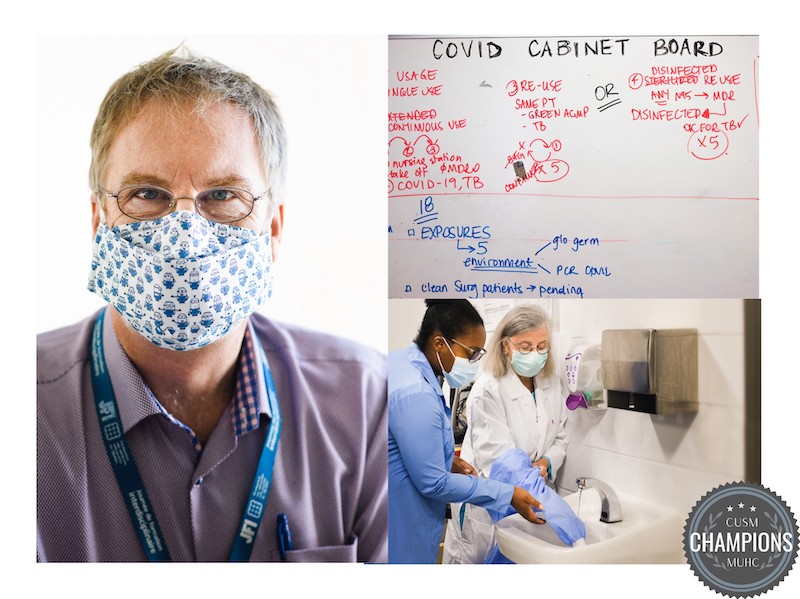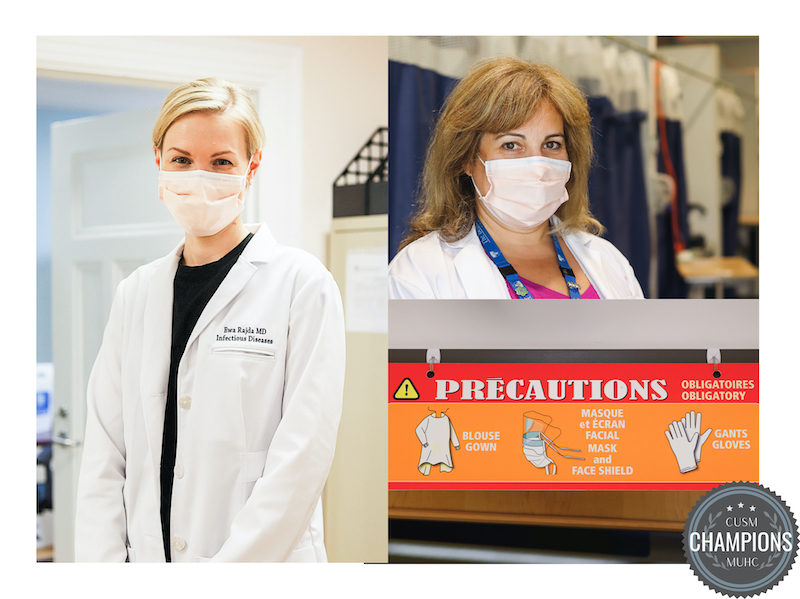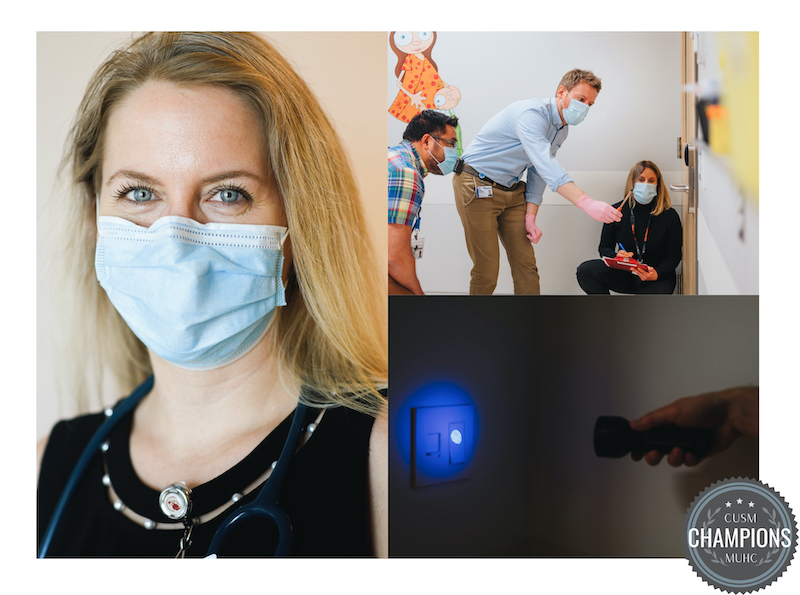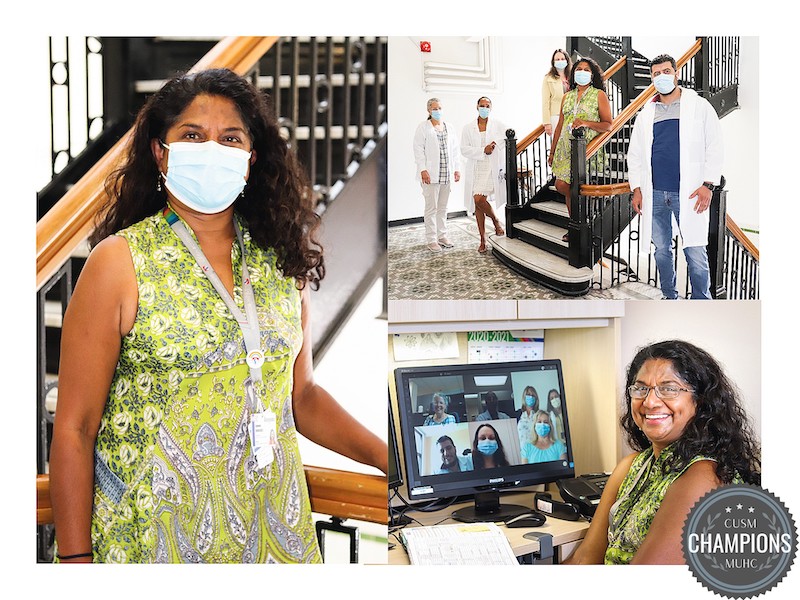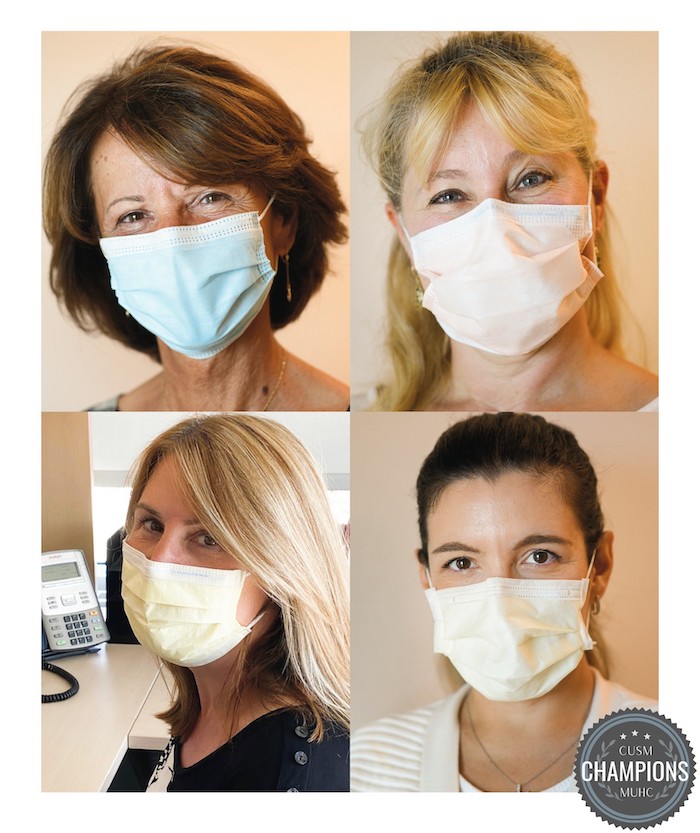MUHC Infection Prevention and Control team: The guiding light throughout COVID-19
Everyone has an important role to play in order to keep COVID-19 at bay, but at the McGill University Health Centre (MUHC), the Infection Control and Prevention team is the guiding light. The group of 17 (doctors, practitioners, administrative staff and technicians) whose role is to keep infections and contagions under control, cover the six MUHC sites ensuring updated protocols and directives are understood and followed. In the face of COVID-19 they handled major additional challenges like true Champions. Thanks to their guidance, the MUHC saw a relatively low level of nosocomial infections.
Dr. Charles Frenette, Medical Director of Infection Control at the MUHC, has seen major outbreaks and pandemics throughout his career, but nothing quite like COVID-19. In 1998, during the ice storm, major outbreaks of the influenza virus occurred in hospitals and long-term care institutions throughout the blackout regions. That year, the vaccine was not effective and one in two patients in these facilities ended up having the flu.
From 2002 through to 2005, a major C. difficile outbreak occurred in many acute care hospitals throughout Quebec. This led to major investments in Infection Control infrastructures throughout the health care system, highlighting the importance of Infection Control professionals.
In 2009, the H1N1 pandemic struck providing insight into how transmission occurs in the community and amongst healthcare workers. A rapid diagnostic test was quickly developed and aided in the management of suspect cases. Fortunately, a vaccine was developed within months, and as a result the overall mortality rate did not increase. More recently, the 2014 Ebola outbreak in West Africa did not reach Canada but served as preparation for a global pandemic.
“We must always prepare for a pandemic,” says Dr. Frenette. “There is only so much we can do in theory and the best way to practice is to deal with influenza and other seasonal respiratory viruses that happen yearly. Because of such preparation, the MUHC was relatively ready to handle COVID-19.” However, what makes this outbreak different from others is its size, the mortality rate it poses and the widespread measures required to control the virus not only in hospitals but also within the community.
“The challenge with a novel virus like COVID-19 is that initially we had very little knowledge on it but despite the fact that there are still many unknowns, we are learning more about it every day,” explains Dr. Frenette. The unknown coupled with unfamiliarity of infection control measures can be anxiety inducing especially for those who are faced with the risk of being exposed.
Inundation of Information
Dr. Ewa Rajda, MUHC Infection Control physician at the Montreal General Hospital and the Lachine Hospital, asserts that one of the greatest difficulties in managing COVID-19 was the amount of information the team received every day.
“Not only was the volume of new information about the virus remarkable, but so was the speed at which it changed,” she says.
Sifting through the extensive scientific information and agreeing on the key points that needed to be communicated to the MUHC community was a component to the team’s success. This meant daily meetings with the Infection Control teams across the MUHC. “Although practices and protocols differ for pediatric and adult medicine, we met daily and worked closely together to ensure that we were all on the same page and followed the same protocols,” says Dr. Marie-Astrid Lefebvre, medical director of Infection Control at the Montreal Children’s Hospital.
The team of infection control practitioners were responsible for conveying the latest recommendations to the units of their assigned sites. “Because the directives from different governing bodies were constantly changing, we had to ensure the staff on the units had the most up-to-date and pertinent information; it was a lot to keep up with for the practitioners,” says Ramona Rodrigues, manager of Infection Prevention and Control, MUHC adult sites.
“Additionally, the shortage of personal protective equipment (PPE) was another novelty that we had to manage,” she adds. Not all PPE met Canadian health and safety standards, so Ramona brought on board a retired Infection Control Specialists Katherine Wadas, whose responsibility it was, with the support of MUHC Occupational Health and Safety, to ensure the equipment met those standards before being distributed for use by staff.
Infection control is everyone’s business
Infection control can be met with resistance, since it asks healthcare practitioners to take extra precautions, adding steps to what is already a demanding workload. However, the fight against COVID-19 has helped change the infection control culture at the MUHC for the better; staff are more vigilant about the spread of infection and almost instinctively practice basic infection control recommendations like handwashing and reducing the spread of secretions. “COVID-19 brought to light that the healthcare setting can be dangerous,” adds Dr. Frenette.
There was an incredible collaboration with the clinical teams,” says Dr. Lefebvre. “Everyone stepped up, every department participated fully understanding that infection control is indeed everyone’s business.
Dr. Rajda praises her experienced colleagues, who worked long hours to successfully keep staff and patients safe. “This was a team effort and everyone on the Infection Control team was essential.”
When the second wave hits, many more hours of team work and coordination will be required, but the increase in information about the virus coupled with the experience acquired during the first wave will be useful in managing it. The Infection Control team weathered the storm and were crucial in keeping patients and staff safe.
